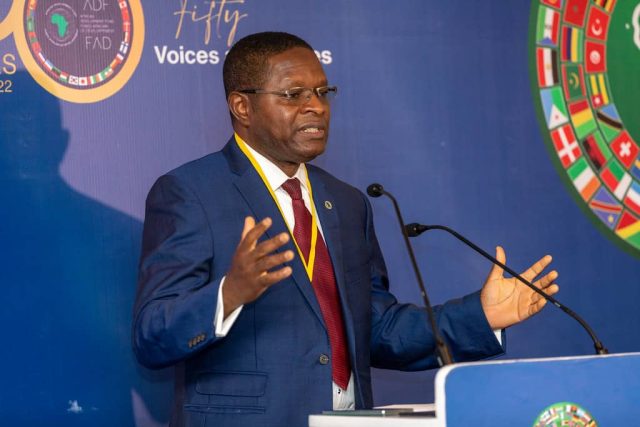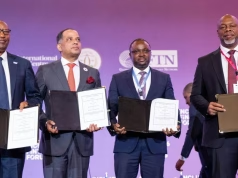
Africa faces a staggering $74 billion debt servicing burden this year, a significant challenge exacerbated by limited access to affordable liquidity, according to Prof. Kevin Urama, Vice President and Chief Economist, Economic Governance and Knowledge Management, African Development Bank Group.
Speaking at the launch of the Debt Management Forum for Africa and the Inaugural Policy Dialogue in Abuja, Urama highlighted the mounting pressure on African countries due to rising debt levels and the increasing cost of borrowing. He emphasized that the continent’s public debt has surged by a staggering 170% since 2010, driven by factors such as structural issues in the global debt architecture, recent global and domestic shocks, and weaknesses in macroeconomic fundamentals.
Urama warned that the current trajectory could trap many middle-income African countries in a “middle-income trap,” potentially delaying their transition to high-income status for over a century. He further pointed out that the changing structure of debt, with a significant increase in private sector lending, presents both opportunities and challenges. While private sector financing can offer alternative sources of capital, it often comes with higher interest rates, increasing the risk of debt distress.
The AfDB Chief Economist also highlighted the impact of rising debt service costs on economic development. Despite a stabilization in the public debt-to-GDP ratio, the increasing cost of servicing this debt diverts crucial resources away from critical infrastructure investments, hindering economic growth and development.
Urama emphasized the need to address critical issues such as capital outflows, which he estimated to exceed $587 billion annually, significantly exceeding total external financial inflows to Africa. He stressed the importance of plugging these leakages to enhance domestic resource mobilization and improve debt sustainability.
The Minister of Finance and Coordinating Minister of the Economy, Mr. Wale Edun, represented by the Director-General of the Debt Management Office, Dr. Patience Oniha, emphasized the importance of the Debt Management Forum for Africa (DeMFA) in addressing these pressing challenges. He highlighted the need for DeMFA to go beyond traditional capacity building and develop innovative solutions to improve debt management practices and address the specific challenges faced by African nations.
The launch of DeMFA marks a crucial step towards improving debt management practices and enhancing the continent’s economic resilience. By fostering collaboration among African countries and providing a platform for knowledge sharing and policy dialogue, DeMFA can play a vital role in helping African nations navigate the complex challenges of debt sustainability and achieve sustainable economic growth.
Follow us on Instagram.
https://www.instagram.com/businessnewsng?igsh=ZXpweTdjOGF1ZXdu
























